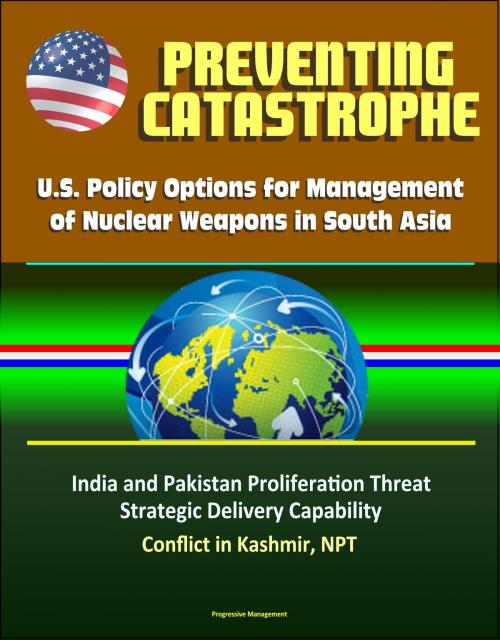Preventing Catastrophe: U.S. Policy Options for Management of Nuclear Weapons in South Asia - India and Pakistan Proliferation Threat, Strategic Delivery Capability, Conflict in Kashmir, NPT
Nonfiction, History, Military, Nuclear Warfare, Asian, India| Author: | Progressive Management | ISBN: | 9781370155613 |
| Publisher: | Progressive Management | Publication: | September 22, 2016 |
| Imprint: | Smashwords Edition | Language: | English |
| Author: | Progressive Management |
| ISBN: | 9781370155613 |
| Publisher: | Progressive Management |
| Publication: | September 22, 2016 |
| Imprint: | Smashwords Edition |
| Language: | English |
This report has been professionally converted for accurate flowing-text e-book format reproduction. This paper proposes a response to the dangerous proliferation of nuclear weapons in India and Pakistan. This paper highlights the threat in "The Nuclear Catastrophe," a gripping projection of the worst-case scenario on the current realities of the Indian subcontinent. Written a year after the "catastrophe," it vividly describes the events leading up to the disaster as well as the grim aftermath of a South Asian nuclear war. The remainder of the paper looks at US regional objectives and suggests how they might be achieved. The author proposes a regional proliferation regime that realistically addresses the threat and moves the United States to a pragmatic approach to manage and limit the ongoing proliferation in South Asia.
At present, India and Pakistan possess only marginal strategic delivery capabilities, and the tensions between them remain at the "simmering" stage. The United States is pursuing closer relations with India with tangible success, but its relations with Pakistan have soured over the last 10 years and reached a low point following the military coup of October 1999. The author believes this imbalance contributes to regional instability and leaves disturbing questions on the horizon. Can the United States help prevent the deployment of nuclear weapon systems in India and Pakistan? How does the United States help prevent the spread of nuclear weapons technology to less friendly, perhaps even hostile, countries? Can Washington prevent either India or Pakistan, or both, from turning hostile to the United States?
This report has been professionally converted for accurate flowing-text e-book format reproduction. This paper proposes a response to the dangerous proliferation of nuclear weapons in India and Pakistan. This paper highlights the threat in "The Nuclear Catastrophe," a gripping projection of the worst-case scenario on the current realities of the Indian subcontinent. Written a year after the "catastrophe," it vividly describes the events leading up to the disaster as well as the grim aftermath of a South Asian nuclear war. The remainder of the paper looks at US regional objectives and suggests how they might be achieved. The author proposes a regional proliferation regime that realistically addresses the threat and moves the United States to a pragmatic approach to manage and limit the ongoing proliferation in South Asia.
At present, India and Pakistan possess only marginal strategic delivery capabilities, and the tensions between them remain at the "simmering" stage. The United States is pursuing closer relations with India with tangible success, but its relations with Pakistan have soured over the last 10 years and reached a low point following the military coup of October 1999. The author believes this imbalance contributes to regional instability and leaves disturbing questions on the horizon. Can the United States help prevent the deployment of nuclear weapon systems in India and Pakistan? How does the United States help prevent the spread of nuclear weapons technology to less friendly, perhaps even hostile, countries? Can Washington prevent either India or Pakistan, or both, from turning hostile to the United States?















